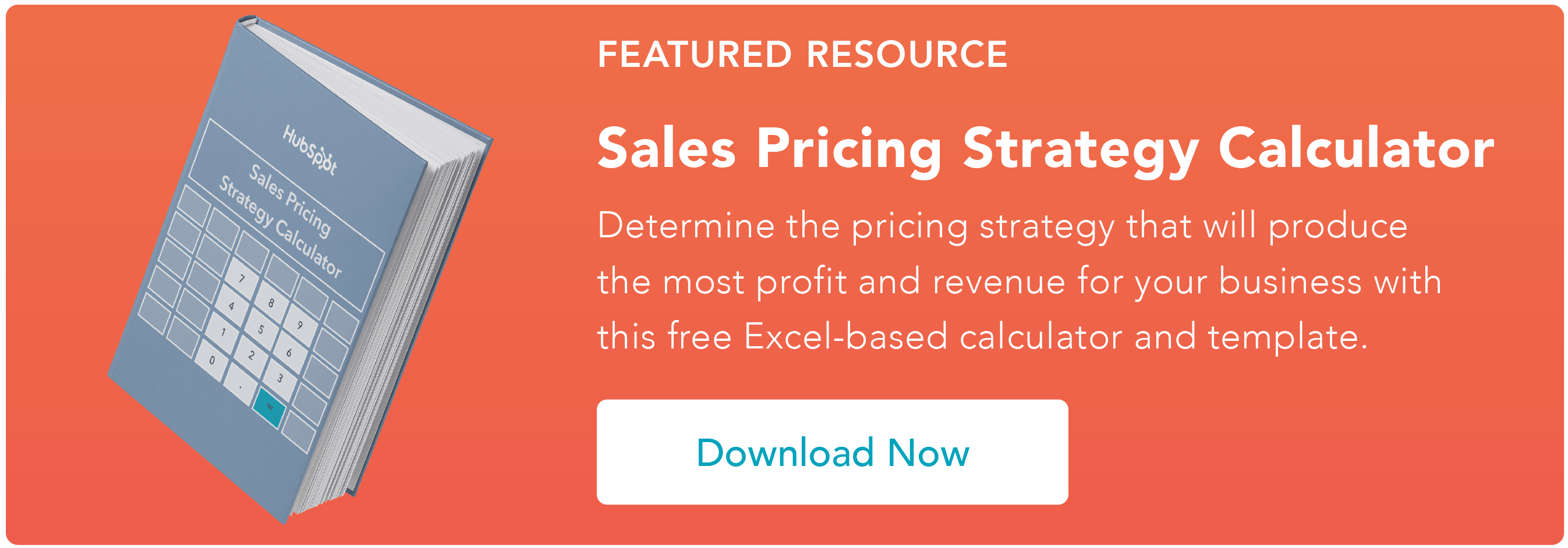[ad_1]
Deciding how to price your products and services can be challenging.
High prices may scare customers away, but low prices may mean you’re underselling yourself and your effort. Given this, it’s important to understand the model that works best for you and what you’re selling, as there are many to choose from.
In this post, we’ll talk about reservation pricing and give an overview of what it is, give scenarios where it makes sense to use the strategy, and how you can calculate your own.
What is a reservation price?
As a seller, your reservation price is the minimum price that you would accept for the product or service you’re selling. It is the bottom line and the least favorable outcome and the point at which you would walk away from a deal if you’re set to get less.
Buyers also have a reservation price, and it’s the maximum amount they would be willing to pay for what you have to offer.
You may be most familiar with this pricing strategy during auctions, where a seller won’t accept anything less than a specific bid amount, which is their reservation price. People selling at an auction typically give a starting bid equal to their reservation price, so all subsequent offers go above their bottom line and gain a profit. Although they’re common at auctions, you can also find reservation pricing in real estate when sellers list their homes at a preferred starting price.
As a reservation price is typically cut and dry, you may be wondering how it factors into negotiations.
Reservation Price In Negotiation
As mentioned above, reservation price in negotiation is the point at which you’ll walk away from discussions with a buyer.
These negotiations typically revolve around the zone of possible agreement (ZOPA), which is the range of prices that either side is willing to pay or accept. For example, if your reservation price is $5 and the buyer is $10, the ZOPA is any amount between five and ten dollars.
While negotiations will end if offers are lower than reservation prices, some sellers opt to lean on a BATNA for a worst-case scenario, which we’ll discuss below.
Reservation Price vs. BATNA
BATNA, which stands for Best Alternative To a Negotiated Agreement, is often confused with reservation pricing. Although they’re similar, BATNA is a backup plan to unsuccessful negotiations, while a reservation price is a set number.
Your BATNA is essentially responding to the question of what you’ll do if your negotiation falls through and goes below your reservation price.
You can think of it like this: you’re selling your car worth $7,000, so you set a reservation price of $6,000. Your negotiations with interested buyers fall short after a month of trying because they’re offering less than your reservation price, so you fall back on your BATNA and sell the car to your friend that initially offered you $5,700 when they learned you were selling.
If you were committed to your reservation price, you would keep trying to find a buyer until you were offered more than 6K.
As a final point of comparison:
- Your BATNA is where you go after you walk away from a deal,
- Your reservation price is the lowest possible amount you’d accept from a sale. Your reservation price can play a factor in your BATNA.
Let’s go over how you can calculate your reservation price.
How To Calculate Reservation Price
Coming up with your reservation price centers around figuring out your bottom line. Depending on what you’re selling, the process and factors can be a bit different. Here are some scenarios:
- If you’re selling a house, you’d want to consider the price you bought it for, the amount of money you’ve put into maintenance and reservations, and what your current housing market looks like. All of these factors can help you figure out the most feasible price for your home, and you’d want to set a reservation price close to that number, so you don’t lose money.
- If you’re selling a car, you want to consider the condition of the vehicle, its mileage, and if the buyer would need to make additional repairs after purchasing. This will lead you to your bottom line, from which you can negotiate higher prices and step away if you’re lowballed.
- If you’re a freelance photographer, you’d want to assess the costs you’d incur to take the job (transportation, materials, effort), your level of experience, and the desires of the person hiring you. You’ll understand your worth and present that as a starting value when sending quotes to customers.
- If you’re leasing office space, you’d want to consider the square footage of the area, amenities within the space, and the location of the building (i.e., is it close to transportation, restaurants, downtown, etc.) You’ll get a sense of the value your space is worth, and you can step away if you feel like offers from buyers aren’t taking that into account.
- Suppose you’re a wholesale company selling food supplies. In that case, your reservation price should be based on the unit prices of your items, the amount of effort put into creating the product, the type of product you’re selling, and any costs associated with the sale like shipping and handling. You can set this as your reservation price and raise prices depending on the additional needs of the buyer.
Ultimately, a reservation price ensures that you’re getting what you are worth as a seller. You won’t lose out on money for something you’ve put time and effort into, and you’ll know when to walk away if you’re underselling.
[ad_2]
Source link



